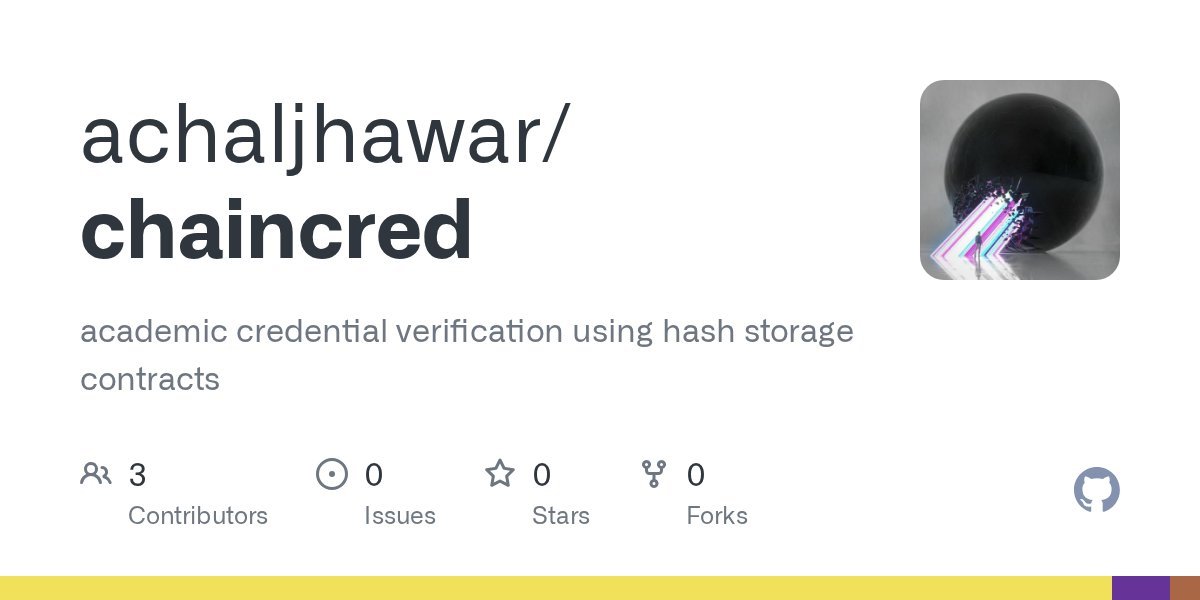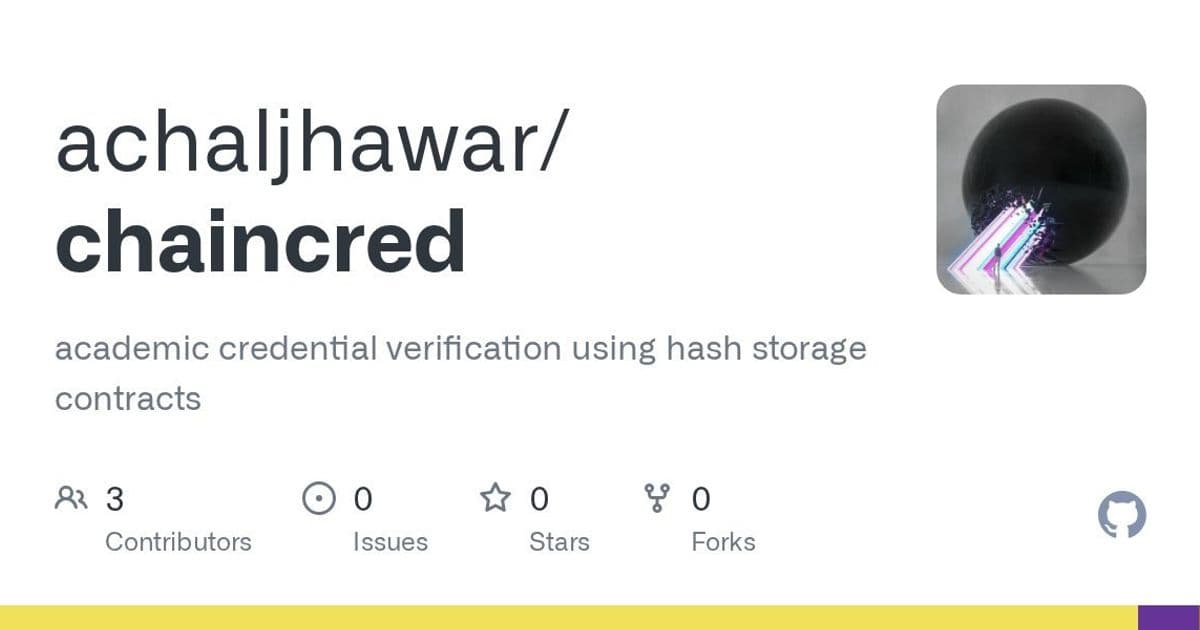An open-source blockchain solution transforms how educational credentials are verified by storing degree hashes on Ethereum and enabling instant QR code validation. This decentralized approach tackles credential fraud while giving institutions a secure, immutable verification system.

In an era where credential fraud costs the global economy billions annually, ChainCred emerges as a compelling blockchain solution. This open-source project leverages Ethereum's immutability to create a tamper-proof verification system for academic credentials. By storing cryptographic hashes of degrees on-chain and enabling instant validation via QR codes, it addresses critical vulnerabilities in traditional verification processes while eliminating bureaucratic delays.
The Credential Verification Crisis
Educational institutions and employers currently face a labyrinth of manual verification requests, slow response times, and fraudulent documents. According to the Association of International Credential Evaluators, nearly 30% of employers encounter fake credentials. ChainCred's architecture directly counters these issues by:
- Storing SHA-256 hashes of credentials on Ethereum's Sepolia testnet
- Enabling real-time verification via QR code scans
- Restricting credential uploads to whitelisted institution wallets
- Providing cryptographic proof of authenticity through blockchain confirmations
"By moving verification to the blockchain, we're not just speeding up the process—we're creating an unforgeable chain of trust," explains the project's technical documentation. "Each credential becomes a permanently verifiable digital artifact."
Technical Architecture Deep Dive
ChainCred's stack integrates modern web development with blockchain infrastructure:
// Sample verification flow
const verifyCredential = async (qrData) => {
const txReceipt = await contract.verifyDegreeHash(qrData.hash);
return txReceipt.status === 1 ? 'Verified' : 'Invalid';
};
Core Components:
- Frontend: Next.js 14 with React 18 and Tailwind CSS
- Authentication: MetaMask wallet signatures with JWT token management
- Smart Contracts: Solidity 0.8.24 (audited HashStorage & WalletWhitelist contracts)
- Infrastructure: Hardhat framework for Ethereum development
Two critical smart contracts power the system:
HashStorage(0xC9Ab20...F9CF31) permanently records credential hashesWalletWhitelistrestricts upload privileges to authorized institutions
Security by Design
ChainCred implements multiple security layers:
- Zero-Raw Data Storage: Only hashes—not sensitive personal data—reside on-chain
- Signature Verification: Institutions must cryptographically sign transactions via MetaMask
- Whitelist Governance: Only pre-approved wallets can add credentials
- JWT Session Management: Secure API endpoints for institutional dashboards
"This approach ensures that even if our database is compromised, attackers gain no usable credential data," notes the GitHub repository's security documentation.
Implementation and Industry Impact
For institutions, ChainCred offers a protected dashboard to upload degree hashes and generate verifiable QR codes. Employers simply scan a code or enter a hash to receive instant blockchain-confirmed results. The system's MIT license lowers adoption barriers for educational institutions exploring blockchain solutions.
Potential ripple effects include:
- Reduced administrative overhead for universities
- Near-instant employment credential checks
- New standards for cross-border academic verification
- Foundation for portable decentralized identity systems
As credential fraud grows increasingly sophisticated, projects like ChainCred demonstrate how blockchain's inherent properties—immutability, transparency, and decentralization—can rebuild trust in academic achievements. The true test will come as real-world institutions stress-test the system against evolving threat models.
Source: ChainCred GitHub Repository

Comments
Please log in or register to join the discussion